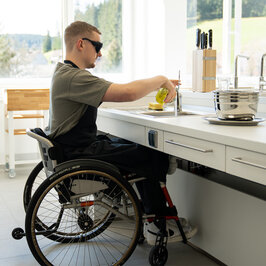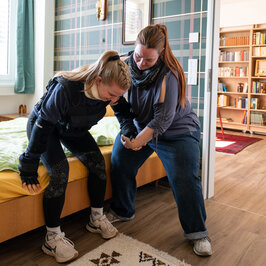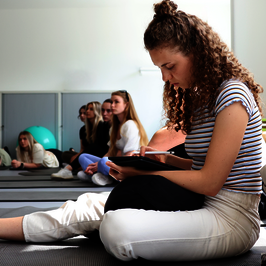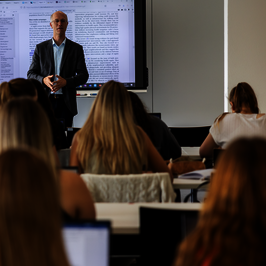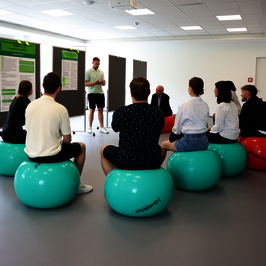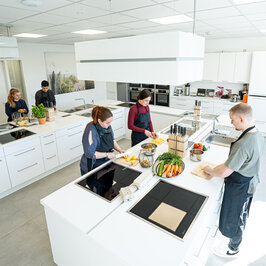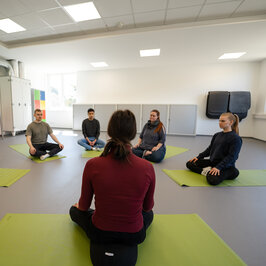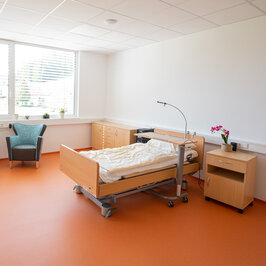Programme content and structure
The course deals with the physical, psychological, social and economic conditions of human health as well as the organisation of the healthcare system. For a "healthy" society, new academic qualifications are needed to meet the current challenges. We teach you them. From corona to dementia, digitalisation and climate - health affects us all. How can people stay healthy for a long time? Avoid risk factors, strengthen protective factors - learn more!
Entry requirements
To apply for AGW, you need a university entrance qualification, i.e. either the general higher education entrance qualification (Abitur), the subject-specific higher education entrance qualification, the entrance qualification for universities of applied sciences or a previous qualification recognised as equivalent.
If you have any questions, send us an email, give us a call or attend one of our regular online consultation sessions. Our staff and student ambassadors will be happy to answer your questions. Check the calendar below for the next dates. By the way, registration is not necessary.
AGW specifics
What's included
AGW Study and Examinations Regulations
Download file:General Bachelor SPO
Download file:AGW SPO (in German)
Our electives
Special features
You can specialise in the fields of health technologies/digital health, occupational health management, healthcare management or community health promotion. Digital Health, for example, is about the use of technology in the healthcare sector.
A degree course to suit your life circumstances – complete flexibility with proven quality
Studying is a full-time job – normally. Our bachelor's degree programme can also be studied part-time and therefore offers a flexible model that suits different life phases and situations! The course is then organised in a different way and stretched out accordingly. Whether you are working, raising children or cannot study full-time for other reasons – we are happy to advise you!
Your career prospects
The career paths of our graduates are as diverse as the programme itself. You can work in health management in companies, in care management at healthcare providers or in health consulting in local authorities.
Whichever path you choose, the healthcare sector is a constantly growing industry. With an internationally recognised university degree from HFU you are ideally prepared for responsibilities in the professional world.
Once you have your bachelor's degree in your pocket, you can continue your academic career by taking a master's, for example in Internal link opens in the same window:Applied Health Promotion or Internal link opens in the same window:Interdisciplinary Health Promotion. And you can even do a doctorate with us afterwards!

